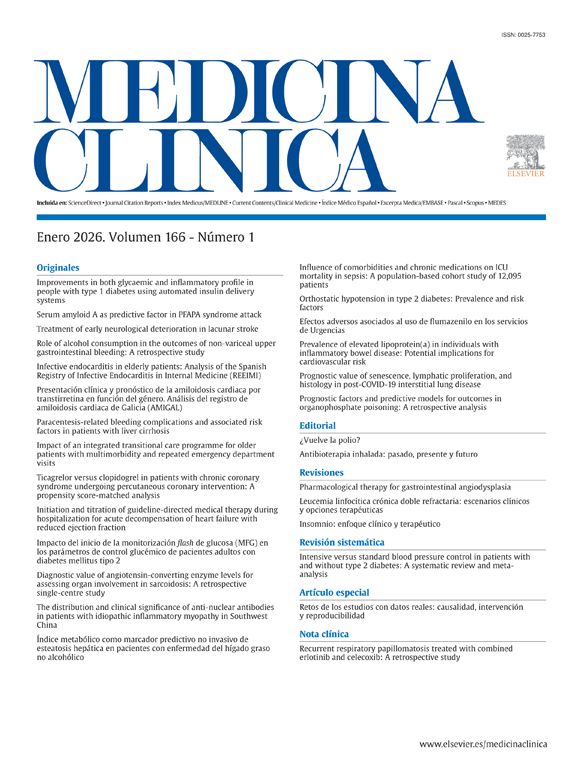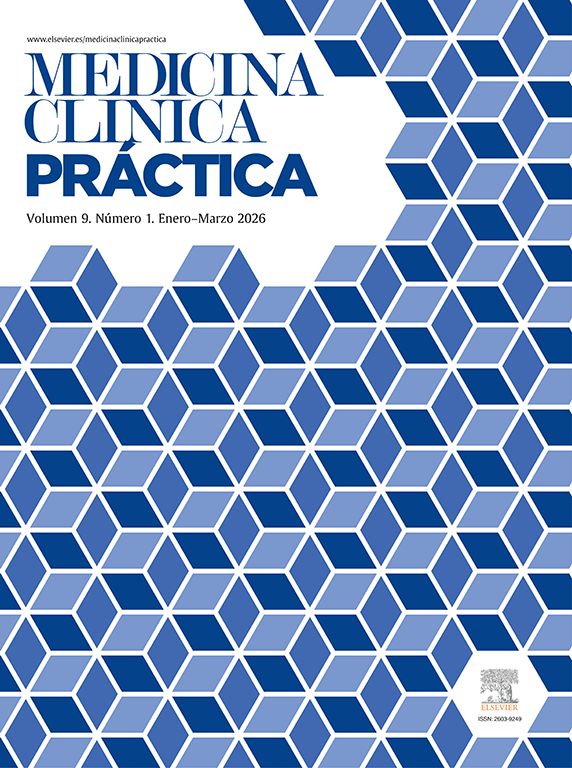There is still limited evidence on the role of glucagon-like peptide-1 receptor agonists in heart failure. We analyzed the efficacy in terms of health status, and the change in body weight of once-weekly semaglutide in patients with heart failure with preserved ejection fraction, obesity and type 2 diabetes.
Patients and methodsThis prospective, real-world study included patients with heart heart failure with preserved ejection fraction, obesity and type 2 diabetes treated with once-weekly 1.00mg semaglutide (Sema-Preserved Group) and patients not treated with glucagon-like peptide-1 receptor agonists (Control-Preserved Group). A 1:1 propensity score matching analysis was performed. The primary outcome was the heart failure status defined as the ≥5 point difference in the Spanish version of the Kansas City Cardiomyopathy Questionnaire total symptom score, and the change of body weight at 24 months.
ResultsAfter matching, 203 patients were included in each group. A primary outcome event occurred in 123 patients (60.6%) in the Sema-Preserved Group and 36 (17.7%) in the Control-Preserved Group (odds ratio: 3.99; 95% confidence interval: 1.69–6.28; p<0.01), and the mean change in body weight was −12.9±4.2kg in patients with semaglutide and −2.5±1.1kg in control patients (p<0.01). There were also significant declines in the heart failure events, and in all-cause hospitalizations.
ConclusionsOnce-weekly 1.00mg semaglutide was associated with improved heart failure health status, and weight loss in patients with heart failure with preserved ejection fraction, obesity, and type 2 diabetes. Further research on glucagon-like peptide-1 receptor agonists in heart failure is needed.
La evidencia sobre el papel de los agonistas del receptor del péptido similar al glucagón tipo 1 en pacientes con insuficiencia cardíaca es limitada. Analizamos la eficacia de semaglutida semanal con relación al estado de salud y el cambio del peso corporal en pacientes con insuficiencia cardíaca con fracción de eyección preservada, obesidad y diabetes mellitus tipo 2.
Pacientes y métodosEstudio prospectivo en vida real en pacientes con insuficiencia cardíaca preservada, obesidad y diabetes tipo 2 tratados con semaglutida 1mg/semana (Grupo Sema-Preservada) y no tratados con agonistas del receptor del péptido similar al glucagón tipo 1 (Grupo Sema-Control). Se realizó un análisis de puntuaciones de propensión 1:1. El objetivo primario fue el estado de insuficiencia cardíaca (diferencia≥5 puntos en la puntuación del cuestionario de cardiomiopatía Kansas City) y el cambio del peso corporal a los 24 meses.
ResultadosTras la propensión, 203 pacientes fueron incluidos en cada grupo. El episodio primario ocurrió en 123 pacientes (60,6%) en el Grupo Sema-Preservada y 36 (17,7%) en el Grupo Sema-Control (odds ratio: 3,99; intervalo de confianza del 95%: 1,69-6,28; p<0,01) y la media del cambio del peso fue de −12,9±4,2kg en los pacientes con semaglutida y −2,5±1,1kg en los controles (p<0,01). Los episodios de insuficiencia cardíaca y las hospitalizaciones por cualquier motivo también disminuyeron.
ConclusionesSemaglutida 1,00mg/semana se asoció con una mejoría del estado de salud y pérdida de peso en pacientes con insuficiencia cardíaca preservada, obesidad y diabetes mellitus tipo 2. Se precisa mayor investigación de los agonistas del receptor del péptido similar al glucagón tipo 1 en la insuficiencia cardíaca.









